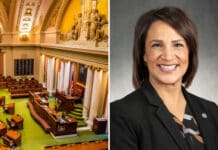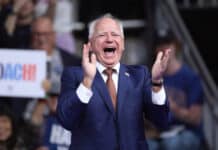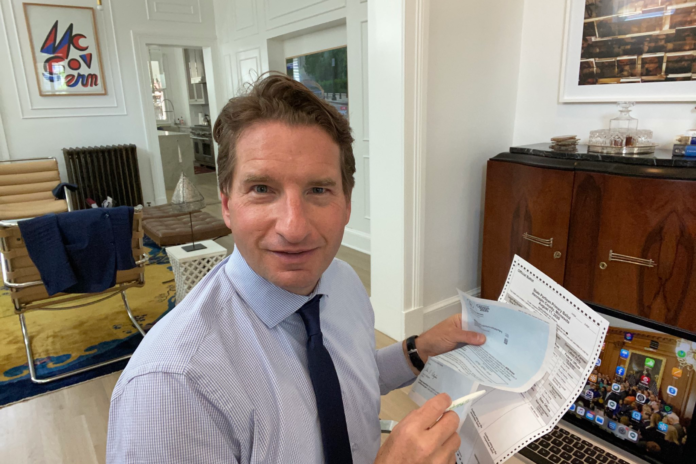Rep. Dean Phillips of Minnesota has reintroduced a bill that would fund ranked choice voting (RCV) systems in interested states and communities.
According to a press release, the Voter Choice Act “provides $40 million in federal grants to cover up to 50 percent of the cost for local and state governments that choose to adopt RCV.”
Joining Phillips in the reintroduction of the bill were Sens. Michael Bennet of Colorado and Angus King of Maine.
“Amid historic division and partisan rancor, we must take meaningful action to improve our electoral system from the ground up,” Phillips said in a statement. “That is why, as cities, states, and even political parties — both red and blue — have recognized, we need ranked choice voting.”
The Minnesota representative claimed ranked choice voting will “reward candidates who broaden support beyond their base,” echoing a popular justification of the system. FairVote has said RCV “gives voters more choice and more power, … incentivizes candidates to build majority coalitions, elects candidates supported by the most voters, and fosters elected leaders who govern, and problem solve on behalf of the majority.”
Numerous cities and states across the United States have adopted RCV for various elections. Five Minnesota cities, according to the press release, will use RCV for “mayoral and council races” this year: Minneapolis, St. Paul, Minnetonka, St. Louis Park, and Bloomington.
But there is doubt as to the intentions of Phillips and others. He has previously said that RCV is a “foundational change that would create the domino effect that would help us get to where we want to go a little more quickly.”
“What exactly is Congressman Phillips saying here — what domino effect does he want to speed up, and to what end?” ask Kathy Kranz and Kim Crockett, authors of an Alpha News article on the system.
Widespread ranked choice voting might also deepen the “historic division” and “partisan rancor” that Phillips claims to want to eliminate. In theory, RCV is packaged as a system that gives voters more choice. But in practice, the system can easily lead to the election of officials who only truly represent a small segment of the voting population.
As Kranz and Crockett put it, RCV “teaches candidates to form alliances (which could be viewed not as healthy coalition building but instead as a form of collusion) with other candidates.”
“These alliances can mask candidate qualifications, and potentially alter the policy positions of the individual candidate, making the choice of who to vote for less clear and more complicated,” they write.
There are also objections to RCV on the grounds that it unnecessarily complicates the voting process.
“Under RCV, voters are often befuddled on how to vote their choice with confidence,” say Kranz and Crockett. “This is especially true of unsophisticated or low-information voters who do not wish to master the ‘strategy’ required by RCV.”
Democratic governors have also opposed RCV as recently as 2019. Former California Gov. Jerry Brown refused to sign an RCV bill in 2016 because the system was “overly complicated and confusing.” Current California Gov. Gavin Newsom said just two years ago that RCV leads to “voter confusion” and does not achieve more “democratic” results.
Kranz and Crockett conclude that progressive politicians like Phillips — as well as Gov. Tim Walz and Rep. Ilhan Omar — may support RCV because they deem the standard voting process an “annoying and burdensome obstacle to getting power and achieving an extreme agenda that most Minnesotans would not support.”


















